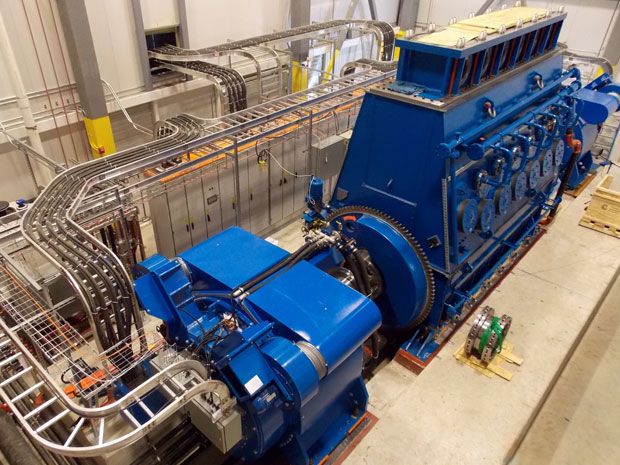Compressed Air Energy Storage Makes a Comeback
Posted by Big Gav in caes, energy storage, sustainx
IEEE Spectrum has an article on a new CAES technique being piloted in the US - Compressed Air Energy Storage Makes a Comeback.
The last time a compressed air energy storage (CAES) plant was commissioned was in 1991. This week, SustainX is bringing the technology back to the U.S. electricity grid, albeit in a vastly different form.The startup, based in Seabrook, New Hampshire, began operating a full-scale demonstration system that stores energy as compressed air in pipes and supplies 1.65 megawatts of power. The company will use the machine to gather data on performance and and to show off the technology to potential investors and customers. The project was funded by $5.4 million from the Department of Energy and at least that much from SustainX, according to a representative.
Conventional compressed-air energy storage uses a compressor to pressurize air and pump it into underground geological formations. The two plants of this type currently in operation—one in McIntosh, Alabama, and the other in Huntorf, Germany—use salt caverns as storage tanks, pumping compressed air in at night, when energy demand is lowest. During the day, the air is released, heated with natural gas, and forced through a turbine to generate power. The appeal of this technology is that it’s relatively low cost and can store many kilowatt-hours of energy.
SustainX takes a different tack: it uses compressed air as the energy storage medium, but holds the air in large pipes, the same used in natural gas pipelines. That means utilities or even commercial customers could place a storage device in a range of industrial locations, rather than only where there’s an underground formation available.
At the base of SustainX’s machine, called the S165, is the bottom half of a diesel engine normally used to propel ships. To store energy, a permanent magnet motor-generator turns the engine's crankshaft, driving six pistons located above it. The pistons, each of which is taller than a full-grown man, compress a combination of air and foamy water, which is then pumped into storage tanks. When power is needed, the air is released, driving the pistons and turning the generator to create a current.
A key difference between SustainX's technique and conventional CAES technology is that the compression and expansion of air are done at near-constant temperature and the process doesn’t require natural gas. And unlike conventional batteries, this system can vary the amount of energy independent of the power output. In other words, you can expand the amount of energy it stores simply by installing bigger pipes. That's different from a battery designed to deliver, say, 1 megawatt for 2 hours. If you wanted four hours of storage, you'd have to buy another battery--a more expensive approach, the company says.






